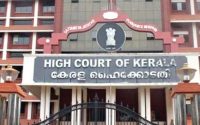Schools Which Require Recognition Under RTE Act Can’t Teach One Religion Exclusively, Rules Kerala High Court.
Source:- swarajyamag.com

The Kerala High Court has ruled that minority institutions cannot promote religion in the garb of the right to establish educational institutions and cultural rights, especially with relation to the Right to Education Act (RTE) 2009.
Another significant feature of the ruling by the High Court Judge Justice A Muhamed Mustaque is that giving preference to one religion over the other, especially under the RTE, strikes at the very root of fundamental values of the Constitution or secularism.
“No school, which is required to have recognition under the Right to Education Act (RTE) Act, is entitled to impart religious instruction or religious study of one religion exclusively in preference to other religion,” Justice Mustaque has been quoted as saying.
Upholding the Kerala government closure order of a school run by the Hidaya Educational and Charitable Trust, the judge ruled that minority institutions cannot be promoting religious-based education in the garb of cultural rights and right to establish educational institutions.
The case of Hidaya Educational and Charitable Trust, in its petition, was that it was ordered to close its school, which was against the fundamental right to education.
The director of education (DoE) argued that the school had functioned without government recognition and admitted 200 students, all adherents to Islam.
The DoE contended that admission was given exclusively to one particular community and the children were imparted education “within the boundaries of Islamic Shariah”.
“An attempt is made to promote the individual identity of the pupil based on Islamic Shariah, which can be possible only by imparting religious instruction,” the DoE argued.
Under Article 28 (1) of the Constitution, there is an embargo on educational institutions, functioning on state funds to impart religious instruction.
The Department further said that religious instruction of one religion cannot be given to the exclusion of other religions and there are no such provisions in the Constitution.
Stating that secularism is against the very idea of ‘exclusivism of one religion over the other’, Justice Mustaque said in India, secularism meant religious neutrality and equal treatment of all religions.
In a multi-religious and multi-cultural society, students need an educational system that equips them to acknowledge and accept diversity in society, the judge said, adding that education must help a student to view the world with an open mind.
The crux of Justice Mustaque’s ruling is that a private body such as a minority religious institution discharging public functions must adhere to constitutional values.
An educational institution getting recognition from the State government under the RTE 2009 was for imparting secular education. The High Court said the State cannot grant recognition to schools that cannot promote the true visions of the Constitution.
Secular activities cannot be mixed with religious activities, the judge said and pointed out that if values based on religious instruction had to be inculcated, then it must be available to all based on religious pluralism.
Upholding the State’s power to regulate the curriculum, the court said the exclusive promotion of a particular religion by private educational institutions defies the secular character of the constitution.
The judge also said protection of cultural rights under Article 29 and the right to establish and administer educational institutions under Article 30 cannot override the basic tenets of the Constitution.
Stating that the status of minority institution in imparting elementary education could be related to the function of a State, Justice Mustaque said if minority institutions are given a free hand to promote religion, then it would lead to denial of admissions to such schools based on religion.
Making it clear that he was not denouncing value education based on religious instruction, the judge said it was only considering a State function discharged by an elementary school.
The ruling said private schools can impart religious instruction after obtaining permission from the State government.
However, in the case of Hidaya Educational and Charitable Trust, the court said imparting religious instruction exclusively following Islamic religion cannot be permitted as it offended the fabric of the society.
Justice Mustaque also ordered the secretary of the Kerala General Education Department to issue a government order directing all recognised private schools to desist from imparting religious instruction or religious study without permission from the government.



